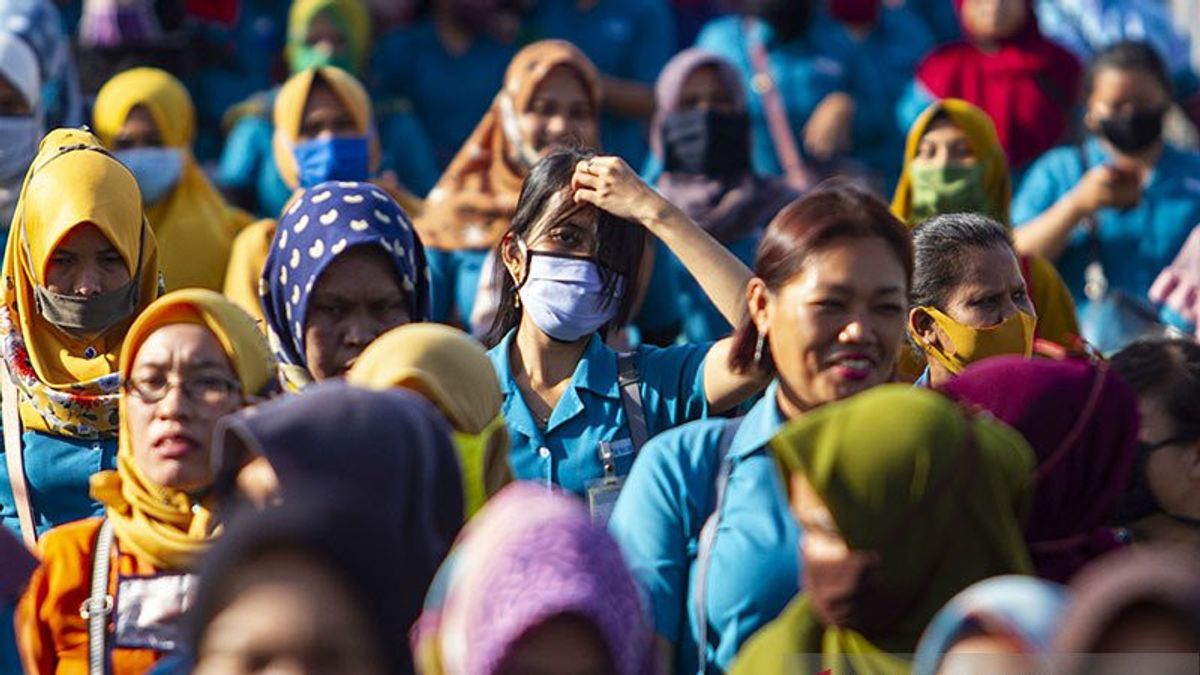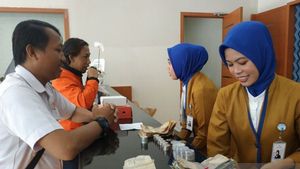JAKARTA - The situation of uncertainty that continues to project the world economy is still in a negative trend. Some international financial institutions have even chosen to correct downwards on their global growth targets.
The International Monetary Fund (IMF), for example, revised the world's gross domestic product (GDP) rate from 3.6 percent to 3.2 percent for this year. The figure then shrunk again to 2.9 percent for 2023.
In fact, the world is not doing well. That is the sentence that is often said by the Minister of Finance, Sri Mulyani.
“In the global economic environment after two years of the COVID-19 pandemic, the situation is not going well. First, there is a supply-side disruption, meaning that the distribution of goods is not smooth and not normal anymore", said the Minister of Finance when giving a presentation to the media crew on Thursday, August 12.
According to her, this has an impact on the delay in meeting needs, which have gradually recovered due to mobility towards a normal trend.
"People's demands cannot be met by the production side because, after two years of being hit by the pandemic, it turns out that normalization of production did not happen to me", she said.
This situation then becomes more complicated when political tensions arise in various parts of the world.
“Then came the escalating geopolitical condition, namely the war in Ukraine. Even now, tensions are running high in Taiwan. All of this will definitely pose additional risks to supply side disruptions", explained the Minister of Finance.
The treasurer also revealed that many countries continue to improve to control the national economy.
"On the other hand, all countries during the pandemic carried out countercyclical actions through fiscal and monetary stimulus so that demand began to recover during 2021 and 2022. However, with the disruption on the supply side due to the pandemic and now the problem of war (geopolitics) while the demand side is increasing, then there was a very high soaring inflation", she explained.
Unfortunately, this 'clean up' step is believed to have generated negative sentiment globally, especially from developed countries to developing countries.
BACA JUGA:
“As in the United States and European countries, inflation is now the highest in the last 40 years. Due to this volatile inflation, a monetary policy response was carried out through tightening liquidity and raising interest rates", said the Minister of Finance.
"This action clearly has a spillover effect to various countries, which causes financial market volatility to soar, capital outflows occur in developing and emerging countries and depress exchange rates, including the rupiah", she continued.
As a result, there is an increase in the number of obligations that must be borne by the government for its debts.
"If the exchange rate becomes depressed, it will increase the cost of funds or increase the cost of debt", she said.
For example, the Minister of Finance then gave an overview of the threat of a financial crisis for a country that from the beginning had a high amount of debt. Fortunately, Indonesia still has debt that is relatively maintained at the level of 40 percent of gross domestic product (GDP).
“Countries that before the pandemic and later during the pandemic their financial conditions worsened, the burden would be higher. If they already have a high debt pressure of 60 percent or even close to 100 percent of their GDP, they must face a greater threat than the exchange rate factor and the cost of funds, she explained.
Therefore, the world is faced with the vulnerability of stagflation (high inflation accompanied by an economic slowdown) and this has become a scourge in many countries around the world.
“The existence of weak state finances with high inflation, then monetary tightening will certainly have an impact on weakening growth. This combination is very complicated and dangerous for policymakers and our economy", closed the Minister of Finance, Sri Mulyani.
The English, Chinese, Japanese, Arabic, and French versions are automatically generated by the AI. So there may still be inaccuracies in translating, please always see Indonesian as our main language. (system supported by DigitalSiber.id)
















